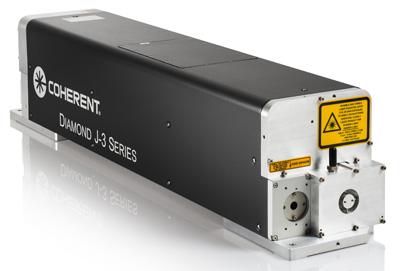
A new generation of carbon monoxide (CO) lasers from Coherent Inc. promise enhanced processing characteristics for materials processing applications ranging from glass cutting and via drilling, to fractional skin resurfacing. While CO lasers were first developed decades ago, practical limitations in their lifetime and operating characteristics restricted them to a handful of niche low power laboratory applications. Now, technological breakthroughs at Coherent have yielded a new class of high power CO lasers with similar lifetime, reliability and maintenance characteristics as the company's highly regarded, slab discharge CO2 lasers, opening up a range of possible uses.
CO lasers output at a wavelength of approximately 5µm, as opposed to 10.6 µm for CO2 lasers. Because some materials that transmit at the longer (CO2) wavelength absorb at 5µm, this leads to advantages in various materials processing applications. For example, there is stronger absorption at 5µm in certain plastic films, polymers and water, as well as some dielectric materials and copper oxides used in printed circuit boards. This enables higher efficiency processing of these materials. Conversely, there is very low absorption at 5 µm in chalcogenide fibers, which opens up the potential for fiber delivery (the lack of a fiber delivery option has limited CO2 lasers in certain applications). Additionally, the shorter wavelength of the CO laser focuses to a spot size that is two times smaller than that of a CO2 laser, enabling significant advantages in the production of smaller holes and features, as well as narrower kerf widths when cutting.
The first commercial CO laser available from Coherent is the J-35µm, which outputs over 200W. The high quality beam (M² < 1.2) produced by this laser allows all the benefits of smaller spot size to be fully realized.
Contact Details
Related Glossary Terms
- kerf
kerf
Width of cut left after a blade or tool makes a pass.
